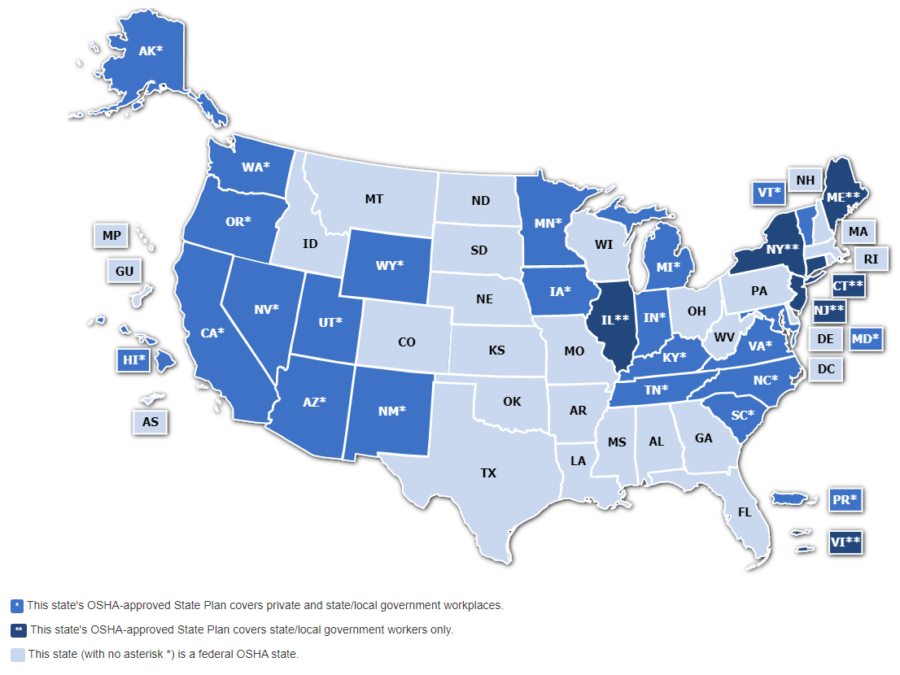Unless the Supreme Court intervenes, employers in roughly half of the United States must vaccinate or test employees by February 9, 2021. In those states, federal OSHA regulates workplace safety directly, and so the federal large employer vaccine-or-test mandate will go into effect without state input.
What if my state has its own OSHA-approved workplace safety agency?
In general, state workplace safety agencies—not federal OSHA—directly regulate employers operating in these states. These are often called “state plan states” in workplace safety circles. Federal OSHA standards generally won’t apply immediately to employers in states with state plans. The large employer vaccine mandate pending at the U.S. Supreme Court is an example.
State Plan States and Federal OSHA States
Source: https://www.osha.gov/stateplans
Instead, these states must adopt any regulation or standard passed by federal OSHA—or an effective alternative. Technically, these states were required to tell federal OSHA by January 7, 2021, whether they’ll adopt the mandate and are required by January 24 to act on that decision. But with the Supreme Court challenge pending, many state agencies aren’t exactly jumping to decide. There is quite a bit of uncertainty as a result.
In the meantime, some state safety regulators, Virginia’s included, indicated that covered employers will have several weeks from state adoption to state enforcement. In other words, they do not intend to apply the ETS retroactively. Assuming the mandate survives the Supreme Court, when, if, and how it becomes law in state plan states is likely to vary. Compliance deadlines will probably vary also, but generally speaking, employers subject to state plans will have more leeway than their federal plan counterparts.
How do I know whether to follow federal OSHA or my state’s OSHA?
Determining whether your workplace is subject to federal or state workplace safety standards and regulations is critical to ensuring compliance with the large employer mandate and safety regulation generally. Some state plans may only apply to state and local government workers, for example. Private employers in those states could be subject to the vaccine-or-test mandate just as if they were in a non-state plan state. Other state plans may not apply to workers in specific industries (longshoremen are excepted in many states, for example) or even particular worksites. These workers’ employers may need to implement the mandate even though other employers in the same state may not at first.
Employers should take this time to carefully consider their status under the federal/state workplace safety regime. Woods Rogers’ Labor & Employment team is helping employers navigate this intersection of state and federal regulations.



